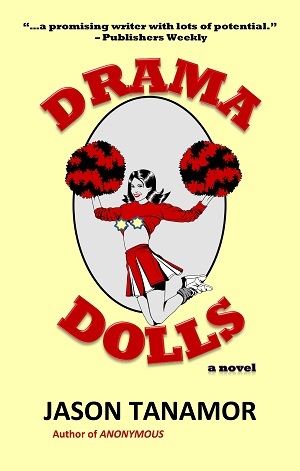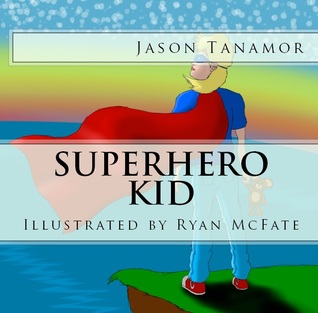Parliament House publishes Jason Tanamor’s “Vampires of Portlandia”, 1st novel with Filipino characters
By: Angie Quadra-Balibay
|
Published on: February 9, 2020

Jason Tanamor releases his first novel with Filipino characters.
A new novel from Jason Tanamor that features Filipino characters is among Parliament House’s new book acquisitions for 2020.
“Vampires of Portlandia” is the Filipino-American author’s first book tribute to his Filipino heritage after releasing 6 acclaimed novels including, “Anonymous” (which received a star review from Publishers Weekly) and “Drama Dolls”; the satirical novels, “Hello Fabulous!” and “She’s the One?”; and the epic superhero themed children’s book, “I Heart Superhero Kid”. Tanamor had over a decade of writing for Yahoo Entertainment and interviewing the likes of author Chuck Palahniuk (Fight Club), baseball legend Pete Rose, and covering Steve Martin, Jerry Seinfeld, Evanescence, President Obama, among many others.
Based on Filipino folklore (aswang), “Vampires of Portlandia” is described by Parliament House: an urban fantasy novel about a family of Filipino vampires that immigrates to the weird city of Portland, Oregon, only to discover that there are other breeds of monsters living amongst them. The novel is complete at 78,000 words and will appeal to fans of the “Twilight Saga” and the television show, “Grimm.”
Among the Filipino characters are Marcella Leones, leader of the Filipino vampires, who relocates her family from the Philippines to Portland, Oregon, her eldest grandchild and heir of her powers, Percival and his brother.

Jason Tanamor’s “Anonymous” received a star review from Publishers Weekly.
GoodNewsPilipinas.com interviewed Jason Tanamor about his new novel, his Filipino-American upbringing, and his current projects.
GoodNewsPilipinas.com (GNP): What got you finally writing about the people of your parental heritage?
Jason Tanamor (JT): For the longest time I didn’t see myself as Filipino, growing up in America and essentially in American culture. I speak very little Tagalog and have never been to the Philippines. So, when I wrote previous novels, I often looked at life through the lens of a non-Filipino. It wasn’t until recently that I’d started to accept my heritage. Could have been age, could have been pride, could have been those pesky lumpia.
GNP: Where did you base ideas for your characters in Vampires? Were there actual Filipinos you used for your character sketches? Places, too?
JT: The main characters are homogenized versions of various Filipinos I know, either friends of the family or relatives. I’d based the young twin, Geena, off my niece when she was the same age as the character. Overall, I think that each character has a little bit of me in them. But, mostly Filipinos have similar traits – they point with their lips, and are always offering you food.
GNP: In another interview you said: “when I moved to Portland, I discovered this entirely different world downtown. It all made sense to have the (vampires) family relocate”. What was it about Portland that made sense?
JT: When my wife and I moved here, I had a similar feeling that the vampires go through in the book. Various characters, threats of violence, instances of joy, and many crows fill Portland, especially downtown. The city center sets up the world in “Vampires of Portlandia” nicely.
Having said that, Portland is very different than where I grew up, so that was part of the adjustment. It was similar to the vampires having to adjust to a new area. If you spend enough time here, you’ll find how accepting the city is in terms of different cultures, quirks, tastes, and personalities, despite all the other stuff.

Drama Dolls by Jason Tanamor.
Writing #ownvoices books
GNP: You are you working on two more books about Filipinos as #ownvoices books. How do you identify with the marginalized identities “of a Filipino teenager who hides his love of Filipino dances from essentially the world, the other about two lovebirds who escape the Philippines during the hostile Martial Law era of President Marcos. Both are based on true stories” – whose, yours and your own family’s?
JT: As a Filipino child, my parents forced me and my brothers to dance in folk festivals and for audiences. It was something I just did on weekends, practicing on weeknights. I rather enjoyed it, mainly because my Filipino friends danced as well, but God forbid that I told my American friends about it. I couldn’t imagine my American friends relating, but looking back it was probably similar to them playing piano or ballet.
As for the Martial Law era, the novel is loosely based off my parents’ life; they’d fled the country in 1974 during Marcos’s reign. My mother and father came from very different lifestyles so that conflict, along with what was going on in the country, made for good narrative. I didn’t understand the impact until I got older. I can appreciate it more. It’s still one of my favorite stories.
Growing up Pinoy in America
GNP: You were born and raised in the U.S. What was it like for you growing up in a Filipino family in America? What do you like about being Filipino or Fil-Am?
JT: It was basically American but with Filipino parents, food, some cultures, and Capiz shelled hanging lamps. I didn’t learn Tagalog so English was always spoken in our house. The main difference between my Filipino family and my American friends’ families was that there was always karaoke going on in my house, barrel men and women sculptures, a huge burlap sack of rice, and marathon games of mahjong.
I appreciate being a person of color more so as an adult than as a child – less ridicule and I have a forever tan.
Writing Entertainment to Fiction
GNP: You were an entertainment journalist who stopped working to focus on your fiction writing. Do you have a favorite story or anecdote about a piece you wrote or interview with an entertainment personality?
JT: Writing fiction and journalism are similar but different. Many former journalists become authors. One of my favorite interviews was with the comedian Dane Cook. He’s sort of like the New England Patriots, New York Yankees, and Nickelback. People just hate him for some reason. I had that mindset going into it, thinking he was going to be a huge douchebag. He actually turned out to be really nice.
GNP: Are there Filipino or Fil-Am celebrities or personalities you consider your mentors in your industry? Or people with Filipino heritage that you consider sources of Filipino pride?
JT: I try not to look up to people who are Filipino for the sake of their nationality. There seems to be a shortage of diversity in the arts in general, including publishing, so whenever I see a person of color doing something to further their culture or cause I tend to root for them.

Jason Tanamor’s epic superhero themed children’s book, “I Heart Superhero Kid
GNP: Have you been to the Philippines? If you have, where did you go and what was the experience like for you? If not, would you want to go – when and where to?
JT: I have not. I would like to go at some point. From what I’ve seen in pictures, the country is beautiful. My parents go back frequently, but I think they go to see their relatives, in which they sit around a house and speak Tagalog all day catching up with their cousins, nieces, etc. If I went, I’d like to go see the sights.
GNP: Will Vampires have a Philippines or at least a FilAm community launch?
JT: I’m working on reaching out to Filipino organizations to help with getting the word out. There are a few in the Portland area that I have on my list to contact.
GNP: How would you describe yourself to those who aren’t familiar with your novels?
JT: I write in and out of different genres. If you’re looking for someone to only write novels about one subject, I’m probably not that person. Of late, I’m focusing on more underrepresented and experimental fiction, such as #ownvoices and subjects that push the envelope.
Jason Tanamor’s “Vampires of Portlandia” will be released by Parliament House in August 2020.
Filipino and Filipino-American characters have made breakthrough appearances in various art forms, among them, the first all-Filipino lead cast CGI on Disney Pixar’s “Float” by Bobby Rubio, Marvel’s Pinay superheroine “Wave” by illustrator Leinil Yu, and the Filipino lead characters of “Yellow Rose”, the multi-awarded Filipino Hollywood film with Eva Noblezada, Lea Salonga, and Princess Punzalan.
SEND CONGRATULATIONS in the comments below to Jason Tanamor and Parliament House for this new novel with Filipino characters!
Want to know how to be a Proud Pinoy? Like, Follow, Subscribe to GoodNewsPilipinas.com and our socials Facebook, Twitter, Instagram, Good News Pilipinas! TV on YouTube, for new story notifications and e-mail newsletters for updates on more Filipino Pride stories.